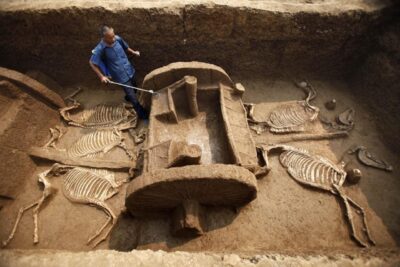An astounding discovery recently unfolded in Africa, where researchers unearthed the remnants of a nuclear reactor with a jaw-dropping age of 1.8 million years. This revelation came to light thanks to the diligent work of an unidentified French uranium researcher based at Gabon’s Oklo Depot.

The depot, formerly part of a French colony, was a focal point for studying the western equatorial side of Africa.

The researcher stumbled upon this astonishing find while examining three distinct uranium types simultaneously: uranium 238, 234, and 235. What initially appeared routine took an unexpected turn when the uranium 235 component was found to be drastically different, possessing only 0.717% of the purity found in common uranium. This anomaly prompted a closer investigation, leading to a revelation that reverberated through the scientific community.

Further exploration revealed that a total of 200 kilograms of uranium had been extracted from the same area over time. This accumulation hinted at a singular explanation—an ancient nuclear reactor must have operated here in the distant past. It’s believed that this reactor dates back over 1.8 million years, and experts suggest that it remained operational for more than half a million years before abandonment by its enigmatic users of ancient times. This groundbreaking discovery not only reshapes our understanding of history but also underscores the ancient fascination with uranium, a resource valuable not only for its role in nuclear energy but also for its mysterious allure throughout the ages. The past holds many secrets yet to be uncovered, each revelation shedding light on the intricate tapestry of human existence.











